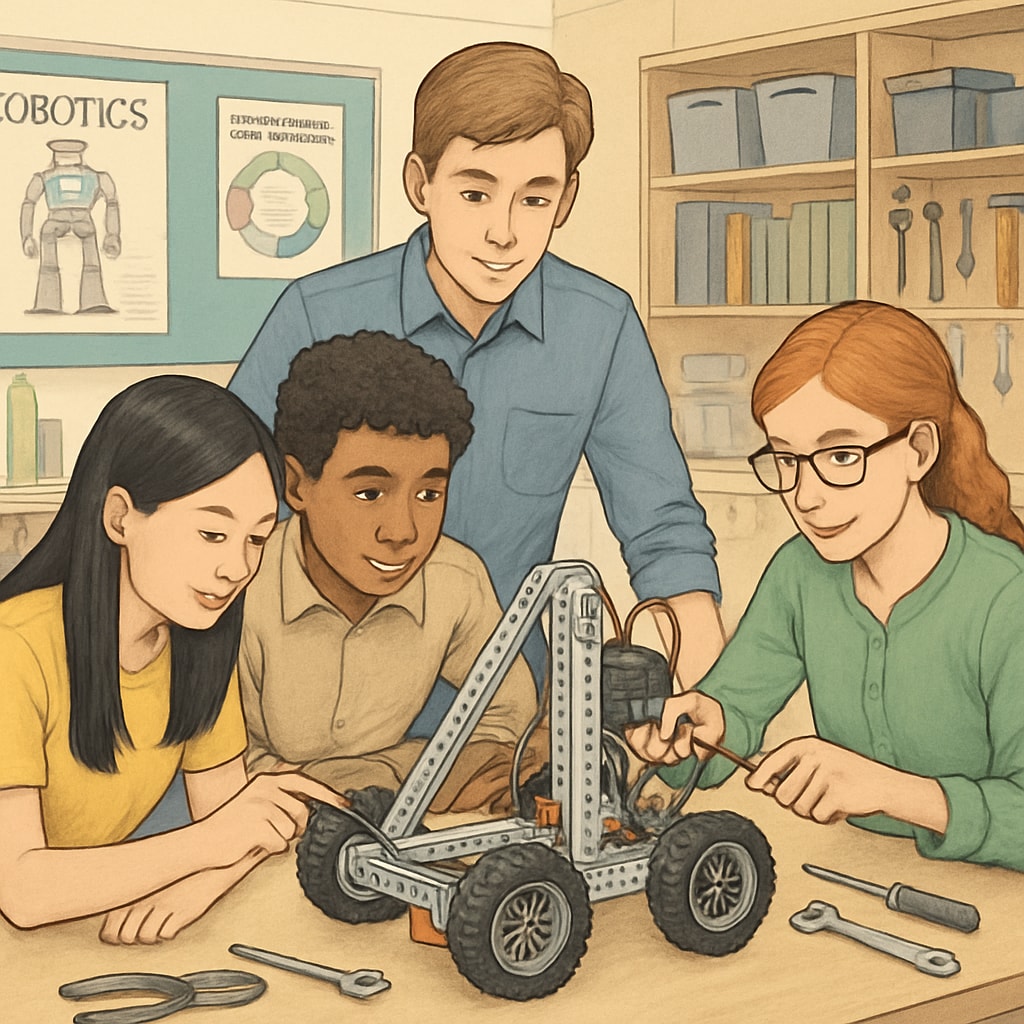Pursuing a degree in mechanical engineering while simultaneously working on an online degree offers an excellent opportunity for career development. However, this dual path requires strong time management, resource allocation, and skill diversification. K12 education plays a critical role in laying the groundwork for such endeavors, as it equips students with early exposure to engineering principles and the ability to thrive in flexible learning environments. This article explores how K12 education can prepare students for future careers in mechanical engineering and the benefits of pursuing diverse learning paths, including online degrees.
Building Engineering Foundations in K12 Education
Mechanical engineering is a field that demands analytical thinking, problem-solving, and adaptability. These skills can be nurtured as early as the K12 stage, where students are introduced to STEM (Science, Technology, Engineering, and Mathematics) subjects. Hands-on activities, robotics clubs, and early exposure to basic mechanics can ignite a passion for engineering.
For example, incorporating project-based learning in K12 curriculums allows students to engage in real-world problem-solving. This approach not only fosters creativity but also develops critical thinking skills essential for mechanical engineering. Additionally, introducing coding and computational thinking early can provide students with a competitive edge in the increasingly digital engineering landscape.
- Encourage participation in STEM competitions to simulate problem-solving scenarios.
- Integrate interdisciplinary projects that combine physics, math, and design principles.
- Promote collaboration through group-based assignments to build teamwork skills.

The Value of Online Degrees for Engineering Students
Online learning has revolutionized education by providing flexibility and access to diverse resources. For mechanical engineering students, pursuing an additional online degree can open doors to complementary fields such as business management, data analytics, or even environmental science. These additional skills can enhance their employability and adaptability in a competitive job market.
Moreover, online degrees allow students to learn at their own pace. This flexibility is especially beneficial for those juggling demanding engineering coursework. However, balancing both degrees requires robust time management strategies. Students must set clear priorities, create detailed schedules, and leverage productivity tools to stay on track.
For example, platforms like Coursera and edX offer specialized programs that align with engineering disciplines. These courses can provide a solid foundation in niche areas, such as renewable energy systems or supply chain management, which complement mechanical engineering expertise.

Time Management and Resource Allocation: Key to Success
Balancing a mechanical engineering degree with an online degree is not without challenges. Effective time management is the cornerstone of success in this dual pursuit. Students should break down their weekly schedules into manageable chunks, allocating time for lectures, assignments, and self-study.
Here are some actionable tips for managing time efficiently:
- Use digital planners: Tools like Google Calendar can help organize tasks and deadlines.
- Adopt the Pomodoro technique: Focus on studying in intervals to maintain productivity.
- Eliminate distractions: Create a dedicated study space free from interruptions.
In addition to time management, resource allocation is equally important. Mechanical engineering students often have access to laboratories, software, and faculty guidance. Online courses, on the other hand, provide access to virtual tools and forums where students can interact with global peers. Leveraging both sets of resources strategically can maximize learning outcomes.
For more insights on time management strategies, explore Time Management on Britannica.
Diversifying Skills for Future Career Growth
The modern job market values individuals with interdisciplinary knowledge. Combining a mechanical engineering degree with an online degree in a related field allows students to diversify their skill sets. For instance, a student with expertise in both mechanical systems and sustainable energy might be better equipped to address global challenges like climate change.
Furthermore, employers often seek candidates with soft skills such as communication, adaptability, and teamwork. Online degrees often include collaborative projects that help students develop these qualities. As a result, students emerge as well-rounded professionals ready to tackle complex engineering problems.
For further reading on the importance of interdisciplinary skills in engineering, visit Interdisciplinary Studies on Wikipedia.
Conclusion: Preparing for a Multifaceted Future
In conclusion, K12 education lays the foundation for engineering thinking, while online degrees provide the flexibility to explore diverse learning paths. Together, these elements prepare students for a multifaceted career in mechanical engineering. By mastering time management, leveraging resources, and diversifying their skills, students can maximize their potential and thrive in a competitive professional landscape.
As the demand for innovative solutions grows, future engineers must be equipped with both technical expertise and interdisciplinary knowledge. By fostering these qualities early on, we can prepare the next generation of mechanical engineers to tackle the challenges of tomorrow.


